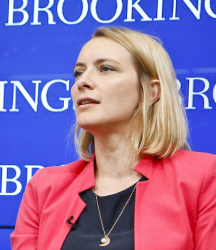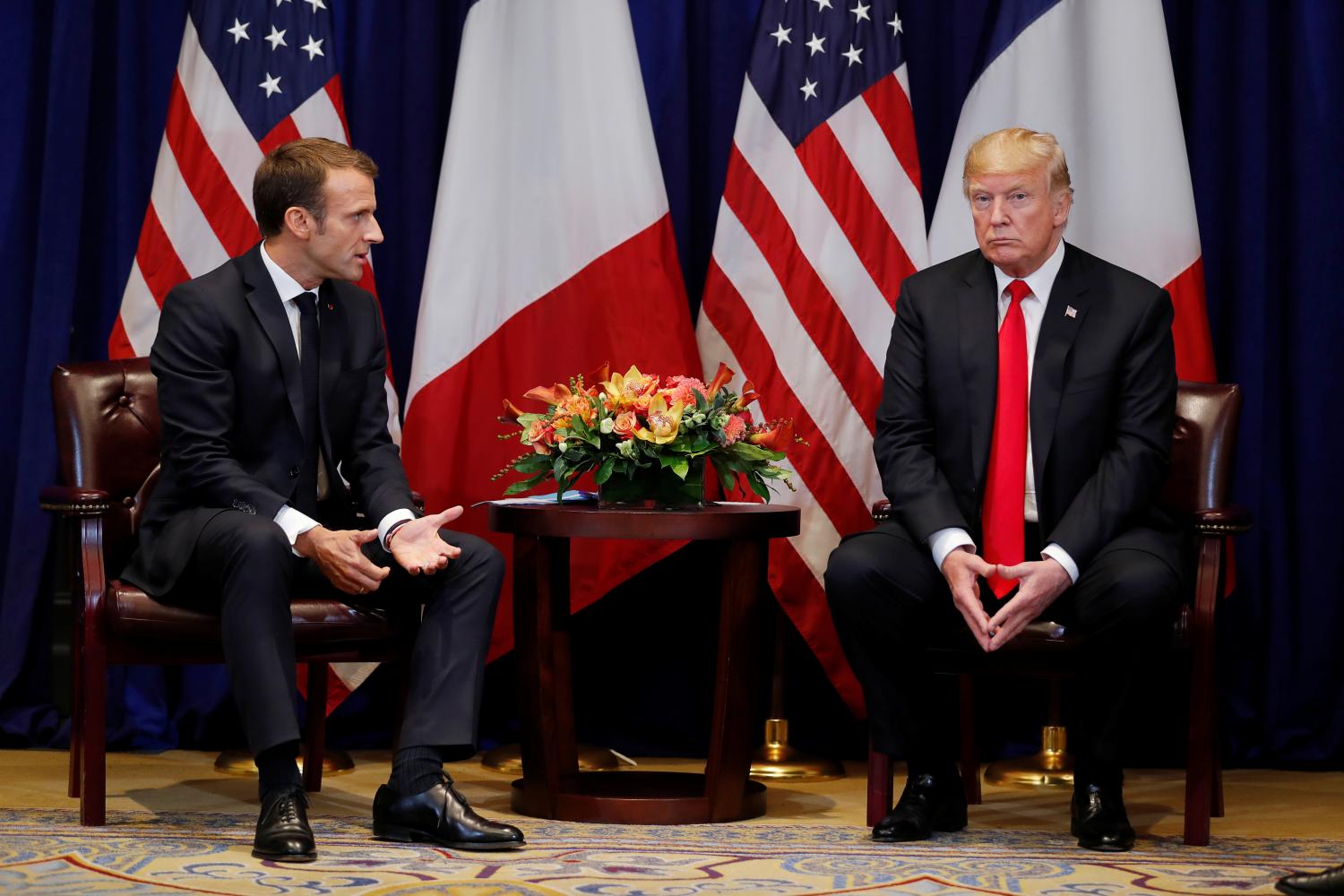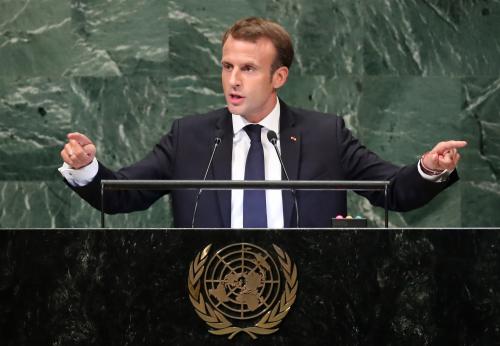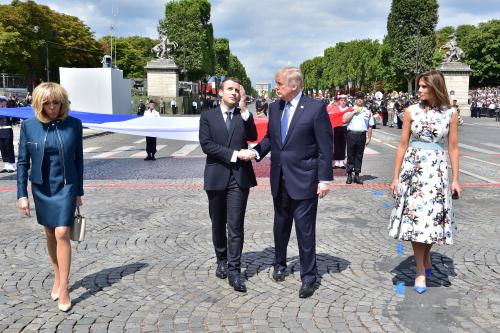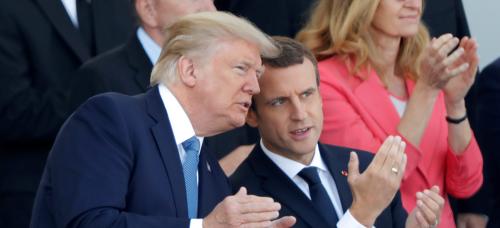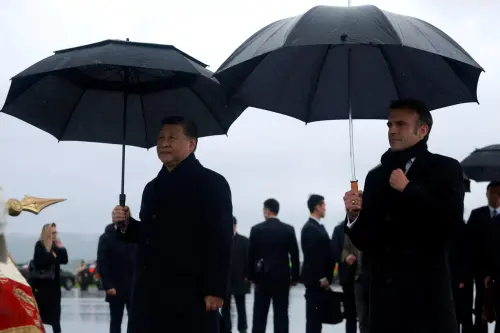A revamped French strategy for dealing with Trump’s America should be focused on uniting and empowering Europe, taking some distance from the U.S. president, preserving institutions through reform and innovation, and keeping the door open to a healthier relations, argues Visiting Fellow Célia Belin in the sixth of a series of papers for the Brookings – Robert Bosch Foundation Transatlantic Initiative (BBTI).
Executive Summary
 At a time when no one expected it, the relationship between President Donald Trump and French President Emmanuel Macron got off to a strong start. Not only did the two leaders click on a personal basis, but contrary to many of its European neighbors, France has mostly approached the tempestuous American president with pragmatism and benevolence. Trump’s interest-driven “America First” foreign policy, which signaled a repositioning of the United States away from democracy promotion and neoconservative interventionism, suited France’s realist approach to the world order. It came at a particularly favorable time for French-American bilateral relations. Over the past decade, France and the United States have enjoyed an excellent defense and security relationship, forged in their common counterterrorism efforts in the Levant and Africa.
At a time when no one expected it, the relationship between President Donald Trump and French President Emmanuel Macron got off to a strong start. Not only did the two leaders click on a personal basis, but contrary to many of its European neighbors, France has mostly approached the tempestuous American president with pragmatism and benevolence. Trump’s interest-driven “America First” foreign policy, which signaled a repositioning of the United States away from democracy promotion and neoconservative interventionism, suited France’s realist approach to the world order. It came at a particularly favorable time for French-American bilateral relations. Over the past decade, France and the United States have enjoyed an excellent defense and security relationship, forged in their common counterterrorism efforts in the Levant and Africa.
Yet, the quality of the French-American bilateral relationship cannot conceal the fact that shared interests and personal connections have not helped to tame the effects of an isolationist and protectionist American foreign policy, nor has it translated into any advancement of multilateral causes or prevented inopportune American meddling in European foreign and internal policies.
At this juncture, France is trying to balance the advantages of a close relationship with an indispensable ally in the fight against terrorism with the reality of a reluctant and disruptive partner that pursues its narrow interests, ignorant to the history of allies and even to the long-term systemic effects on the post-World War II world order.
There is a path forward for France, along with European partners, in dealing with the Trump administration and a more selfish America. It consists of a durable balancing act between interests and principles, national independence and European solidarity, short-term objectives and long-term ambitions. A revamped French strategy for dealing with Trump’s America should be focused on uniting and empowering Europe, taking some distance from the U.S. president, preserving institutions through reform and innovation, and keeping the door open to a healthier relationship with the United States down the line.
As Europeans start taking in the reality of increasing global multipolarity, whereby an aggressive United States continues to dominate, they will have to balance between two parallel roads. They will have to not only gain strategic autonomy to protect themselves against great power competition, but also find partners among like-minded powers (such as Japan, Australia, South Korea, Canada) to hold the fort of multilateralism and international law until a more cooperative United States returns.
